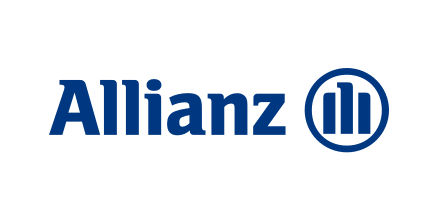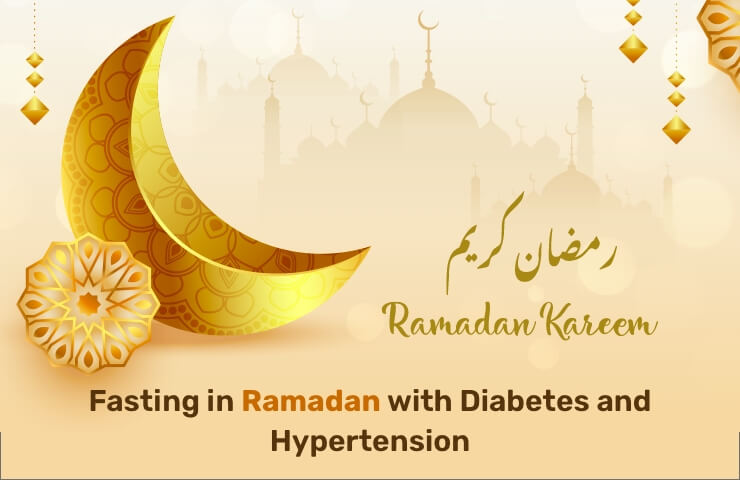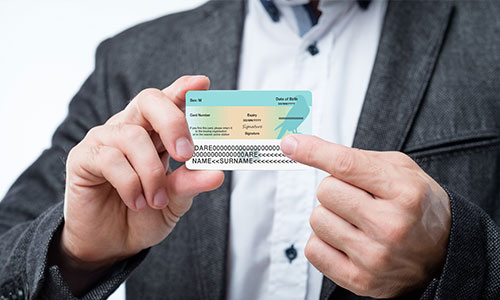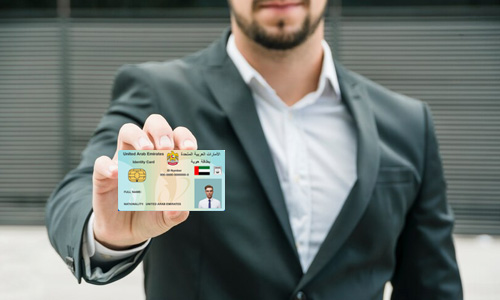Fasting in Ramadan with Diabetes and Hypertension
Spare 30 seconds of your time and find your ideal health insurance.
Health Insurance UAE Plans
















Ramadan, or the ninth month of the calendar as per Islamic traditions, is held in great esteem by Muslims across the world. Widely described as the holiest month in the Islamic calendar, the period usually runs for 28 to 30 days. In 2022, it will run between April and May.
With fasting being defined as one of the five pillars of Islam, Ramadan is characterised by a rigorous month-long fast where one has to abstain from unethical behaviour and even thoughts. However, while the prescription of abstention from even food and water between sunrise and sunset is challenging for all, it is especially the case with people suffering from diabetes or hypertension.
With the percentage of the UAE population suffering from diabetes and hypertension being 19% and 29%, respectively, one can say that the problem is faced by a significant number of people. For such patients, there is a concern if they would be able to complete the fast and demonstrate their reverence. However, with a few simple steps, such people can easily complete the fast with minimal stress on their bodies. Following are some of those steps, but let’s explore a few more details regarding Ramadan first.
Ramadan – What is it?
As defined previously, Ramadan refers to the ninth month of the designated calendar as per Islamic traditions. In this 28-30 day period, Muslims across the world fast between sunrise and sunset on a daily basis. As per Islamic traditions, the month of Ramadan was the period when God first revealed the holy Quran to Prophet Muhammad.
How is Ramadan Marked?
Ramadan is widely known for the rigorous fasting undertaken by Muslims, with people observing the fast not even allowed to consume water in the prescribed fasting period. A day in Ramadan consists of two meals, with the names being suhoor and iftar as per the time of morning and evening, respectively. Notably, exceptions are there regarding fasting in Ramadan for pregnant women, elders, people with severe diseases, etc.
Eid al-Fitr signifies the end of the month of Ramadan. Just like the start of Ramadan, Eid al-Fitr is also noted with the frame of the moon. Unlike the fasting period, Eid al-Fitr is celebrated with sumptuous feasts along with family and friends.
Possible Complications for Patients
While such extensive fasting can impact most people, the effect on patients with hypertension and diabetes can be exacerbated. With dehydration being linked to shooting stress levels, it can prove challenging for hypertension patients who usually possess increased blood pressure and stress. Similarly, all types of diabetes patients, whether having type 1 or type 2 diabetes, are recommended to have multiple small meals across the day, having only two large ones in the day can make normal sugar level fluctuate.
At the same time, it should be noted that intermittent fasting has been associated with several benefits. Besides facilitating a ‘detox’, such fasting also helps people balance their cholesterol levels and even lose weight. With this last factor being a major aspect in the prevalence and severity of these two ailments, fasting can also help people tackle them to a certain extent.
Ultimately, balance is the key here. To have a proper fasting schedule in a balanced manner, here are some
5 Tips for Balanced Fasting for Diabetes and Hypertension Patients in Ramadan
These quick tips can help such patients while keeping fast in Ramadan.
Maintain Proper Hydration
Maintaining a minimum level of hydration is necessary for the proper functioning of the human body. This fact applies even more in the case of Ramadan, where even an intake of water is restricted while fasting. Consequently, there is a high probability of dehydration in such times, which is of special concern for diabetes and hypertension patients.
As per reports, such patients are more at risk of dehydration, which could prove riskier while abstaining from food and water. Another aspect here is that all of these are also interrelated. So while diabetes patients are more prone to dehydration than people without it, dehydration in itself also tends to push blood pressure towards the extremes. Consequently, one should remember to take as much water and similar liquids in the allowed period as possible.
Avoid Strenuous Activity
Most people cherish sports, cycling, and other forms of physical activity to keep fit and easily feel refreshed. Generally, the more strenuous activity, the more sweating is involved. This can have a detrimental effect on hypertension and diabetes patients, as even normal sweating can cause significant dehydration in them, which can exacerbate problems regarding glucose and blood pressure.
On the flip side, research has pointed out that even light physical activity can enhance overall mood, which can cut down on the factors causing the issues. Moreover, physical activity in itself has been linked to better regulation of blood glucose or normal sugar level. Consequently, it is recommended that one should avoid exhausting physical activity but indulge in light one.
Eat Right
After a whole day of keeping distance from food and water, the sight of your meal may prove incredibly tempting. Similarly, the anticipation of a day-long fast may compel you to consume meals in the morning to the maximum extent. However, as you would be having only two proper meals in Ramadan, regulating them assumes significant importance here.
To start with, experts suggest that one should avoid meals with high amounts of sugar, particularly for diabetes and hypertension patients. They are instead suggested to consume proteins, fats, carbohydrates, etc., proportionately, as such a diet can help them maintain their energy levels throughout the day without compromising normal sugar level. Similarly, the intake of salts should be controlled to avoid pressing blood pressure to unhealthy levels, and the consumption of healthy foods such as fruits could be increased.
Focus on Other Aspects of Ramadan
For most people, Ramadan is linked with fasting by avoiding eating, drinking water, smoking, etc. While this holds true, Ramadan encompasses several other factors as well. Besides the mentioned abstentions, people are also recommended to avoid unethical actions, words, and even thoughts. Similarly, they are suggested to devote themselves to the study of the Quran and put its ideals into practice.
For diabetes and hypertension patients, this part is an excellent way to maintain their fast without significant hassles. Such steps provide the individual an opportunity to exercise gratitude and other positive emotions by enhancing their empathy and contributions to society. From a practical perspective, this is even more beneficial as being engrossed in specific activities can divert their attention from the fast while also relaxing their bodies more, ultimately leading to better management of their ailments.
Consult a physician
Ultimately, no one understands patients better than their concerned doctors. With most hypertension and diabetes patients taking guidance from physicians, they should especially make a point to consult their doctor before starting Ramadan fasting. Besides guiding on the diet, the doctor would also be better equipped to manage your medication and other issues at the time.
Key Takeaways
Ramadan is of utmost importance for the Muslim population across the world. With fasting being one of the central tenets here, most family members gather and keep the fast together in adherence to Islamic traditions. Such arduous fasting may concern people having ailments like hypertension, diabetes, etc. However, if the mentioned tips are followed in proper consideration by the physician, keeping such a fast may prove manageable.
More From Health Insurance
- Recent Articles
- Popular Articles






















